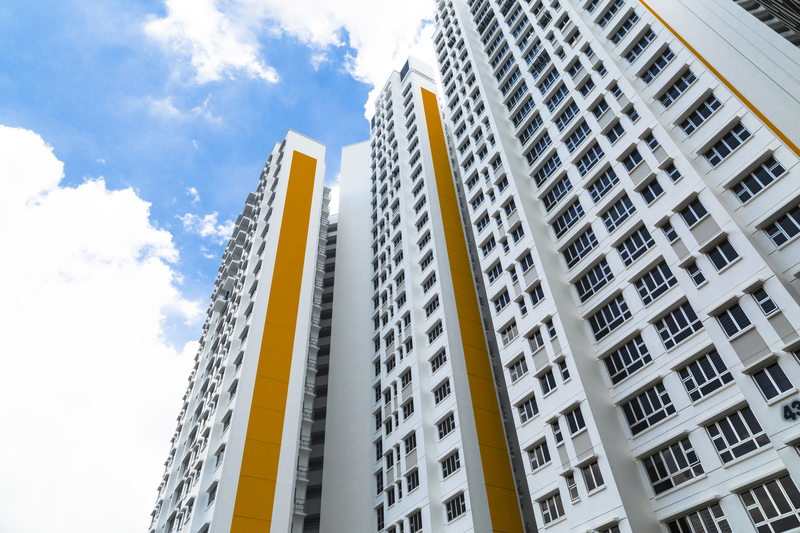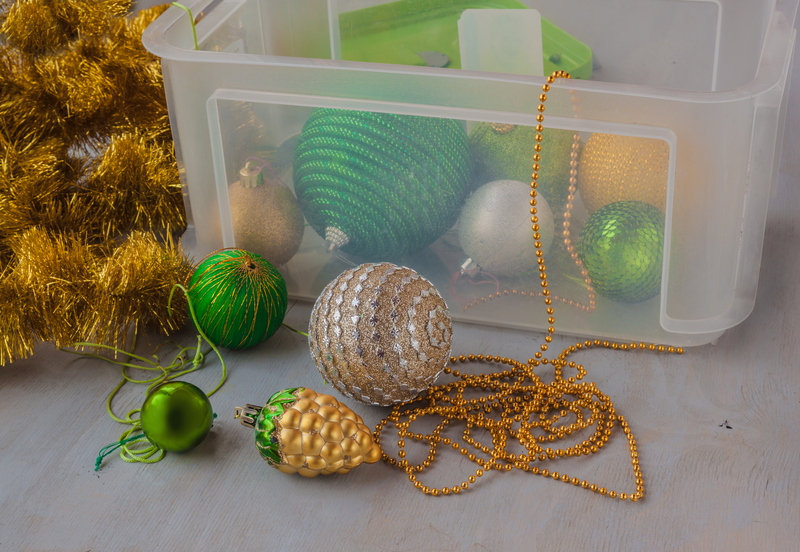Avoiding Disaster: Professional Help for Piano Moving
Posted on 21/05/2025
Avoiding Disaster: The Importance of Professional Help for Piano Moving
Pianos are not only beautiful instruments but also valuable investments and cherished heirlooms. Whether you own a classic grand piano, a modern upright, or a digital hybrid, moving your piano safely requires skill, proper equipment, and expert knowledge. In this comprehensive guide, we will explore why professional piano moving services are essential, the risks you face with DIY moves, and how to choose the best piano movers to protect your prized possession.

Understanding The Challenges of Piano Moving
Pianos are among the most difficult household items to move. Their size, weight, and delicate internal mechanisms present unique challenges:
- Weight: Even a small upright piano can weigh several hundred pounds, while grand pianos can easily exceed 1,000 pounds.
- Shape: Pianos have awkward dimensions, making it difficult to handle and maneuver through narrow spaces.
- Fragility: The inner parts -- strings, hammers, and soundboards -- are highly sensitive and can be damaged by rough handling or tilting.
- Surface Finish: The fine woodwork and finish can be scratched or dented if not protected properly during the move.
Why Not Move a Piano Yourself?
Despite the challenges, some people are tempted by a DIY approach. However, this decision sometimes leads to costly disasters:
- Personal Injury Risks: Attempting to lift or maneuver a heavy piano without proper training or equipment can result in serious injuries including back strains, crushed fingers, and even broken bones.
- Property Damage: Dropping a piano or hitting walls, stairs, and door frames can damage your piano, your home, or both.
- Piano Damage: A minor mishap can lead to thousands of dollars in repairs for scratched finishes, broken legs, or misaligned mechanisms.
- Hidden Costs: If repairs are needed after a failed move, the costs can quickly exceed what you would have paid for professional help.
In summary: The risks are substantial, and the potential for disaster is real. For most piano owners, hiring seasoned piano movers is the safest and most cost-effective choice.
Benefits of Investing in Professional Piano Moving Services
When you rely on experienced piano movers, you gain multiple advantages that help you avoid disaster:
Expertise and Skills
- Professional piano movers are specifically trained to handle the unique structure and requirements of all types of pianos.
- They understand how to dismantle, wrap, and reassemble various piano models safely and efficiently.
- Movers use advanced equipment, like piano skids, ramps, and moving pads, which are essential for a safe move.
Specialized Equipment and Techniques
- Custom Dollies and Boards: Piano moving companies use sturdy boards and dollies designed to balance weight and protect floors.
- Safe Wrapping: They use thick blankets and padding to protect both the instrument and your doorframes or stairs.
- Secure Transport: Inside their trucks, pianos are carefully secured to prevent shifting, which can lead to structural damage.
Liability Coverage and Insurance
- Professional piano movers are insured, which shields you from financial loss in case of accidental damage during transport.
- If the unexpected happens, you are covered -- unlike a DIY approach, which leaves you fully responsible.
Time and Peace of Mind
- Experienced teams work efficiently, minimizing the risk of damage or delay.
- You enjoy peace of mind knowing your beloved instrument is handled with care by skilled professionals.
How to Choose the Right Piano Movers
Not all moving companies have the expertise required for piano moving. Here are key factors to consider:
Experience and Reputation
- Choose companies with a proven track record in professional piano moving services.
- Look for online reviews, testimonials, and social media mentions about their piano moving experience.
- Ask for references from previous clients with similar moving needs.
Insurance and Licensing
- Verify that the moving company is licensed and fully insured for both residential and commercial piano moves.
- Request proof of insurance and understand what is covered before signing any contract.
Specialized Equipment
- The best piano movers use proper skids, straps, and cushioning material for every move.
- They should also have vehicles with lift gates and climate control for longer moves or sensitive instruments.
Transparent Pricing
- Get a detailed written estimate outlining all fees, including labor, mileage, insurance, and equipment costs.
- Watch out for hidden charges -- reputable movers provide clear, upfront pricing.
Customer Service
- The company should answer your questions promptly and communicate openly throughout the process.
- Ask about their procedures for handling emergencies or unexpected obstacles.
The Piano Moving Process Explained
Understanding how professional piano movers operate can help you appreciate the value they bring:
- Initial Assessment: Movers evaluate your piano type, its size, weight, your home's layout, stairs, and potential obstacles.
- Preparation: The instrument is wrapped in moving blankets and secured to a piano skid or board for safety.
- Transport: Using dollies and careful coordination, the team navigates your piano through tight spaces, stairs, or elevators without causing damage.
- Loading: The piano is secured in the moving truck, often with climate control for long-distance hauls.
- Unloading and Reassembly: At the new location, the movers reverse the process, ensuring the instrument arrives in perfect condition.
Special Considerations for Different Piano Types
- Grand Pianos: These require partial dismantling, usually the removal of legs, pedals, & lid, for safe transport.
- Upright Pianos: Due to their height and weight distribution, upright pianos demand careful tilting and maneuvering.
- Digital Pianos: While lighter, they too can be fragile, with sensitive electronics requiring protection against moisture and jostling.
Tips for a Smooth Piano Moving Experience
To ensure your move goes off without a hitch, consider these helpful tips:
- Schedule Early: Professional piano movers can get booked during peak moving seasons, so schedule your move well in advance.
- Clear Pathways: Remove rugs, furniture, and other obstacles to provide an unobstructed route for movers.
- Inform Movers of Challenges: Alert the team about narrow doors, tight staircases, or elevator access ahead of time.
- Prepare for Re-Tuning: After a move, pianos typically require tuning to restore their perfect pitch.
The Costs of Professional Piano Moving
Many homeowners wonder about the costs of hiring an expert:
- Factors Affecting Price: Size and weight of the piano, moving distance, number of stairs, and difficulty all influence the final price.
- Typical Range: In the US, local moves can cost between $200-$600 for upright pianos and $400-$1,000+ for grand pianos. Long-distance moves or additional services, like craning, increase the price.
- Value for Peace of Mind: These costs pale in comparison to potential expenses from damage to the piano, property, or personal injury during a DIY move.
Common Mistakes to Avoid When Moving a Piano
- Underestimating Weight: Don't assume several people can simply lift and carry your piano without serious risk.
- Lack of Proper Equipment: Standard household dollies or straps are insufficient for moving pianos safely.
- Improper Disassembly: Never attempt to disassemble parts unless you fully understand the instrument's mechanics.
- Ignoring Tuning Needs: Always plan for professional tuning after the move to restore your instrument's sound.

Frequently Asked Questions About Piano Moving
Can I Hire Regular Movers to Move My Piano?
Most standard moving companies are not equipped for the complexities of piano moving. Always opt for specialists who focus on safe piano handling.
How Long Does It Take to Move a Piano?
Moving time depends on the size of your piano and the challenges of your space. On average, a move can take 2-4 hours for local relocations.
Will My Piano Be Insured During the Move?
Reputable professional piano movers offer comprehensive insurance coverage for accidental damage during transport. Always check the details in advance.
What Should I Do After My Piano Arrives?
- Let the instrument acclimate to the new environment, especially after a long-distance move.
- Schedule a professional tuning within two weeks of arrival to correct changes caused by temperature and humidity shifts.
Conclusion: Trust Professionals to Avoid Piano Moving Disasters
Your piano is a valuable asset that deserves skilled care. Attempting to move it yourself can lead to disaster -- from physical injuries to irreparable damage to your instrument. By entrusting the job to professional piano movers, you ensure safe transport, minimize risks, and preserve the beauty and function of your cherished piano for years to come.
Ready to move your piano? Don't risk disaster -- choose experienced piano moving specialists who treat every instrument like their own masterpiece.
Latest Posts
Transform Moving Chaos into Calming Order
How to Avoid Stress by Packing Effectively When Moving
Efficient Cleaning Tips for a Stress-Free Move Out



